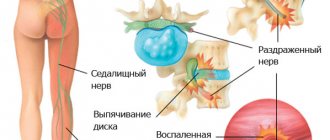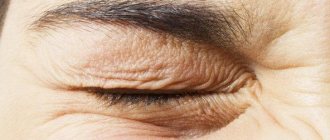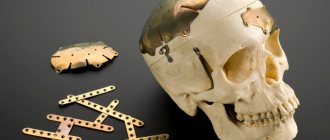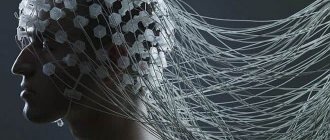Failures in the functioning of the body's autonomic system lead to vegetative-vascular dystonia. The cause of the disease is an imbalance of the sympathetic and parasympathetic autonomic departments, which entails a change in vascular tone; in the absence of organic changes, the activity of internal organs is disrupted.
VSD is not considered a disease. Dystonia is a set of symptoms that characterize the pathological state of certain systems - nervous, endocrine, digestive, cardiovascular.
Dystonia manifests itself in patients regardless of age. Symptoms of the disorder cause inconvenience and worsen the patient’s life.
Who should I contact first?
Symptoms of neurocirculatory dystonia are of a different nature, because disorders affect many systems of the human body and cause digestive disorders, genitourinary disorders, disruptions in the functioning of the heart and blood vessels, and headaches of various origins may also occur.
At the first suspicion of a disease, you need to know which doctor to contact. With a diagnosis of VSD, it is necessary to visit a family doctor or local therapist, who, based on complaints, will be able to establish a clinical picture and a presumptive conclusion.
After the examination, it will be determined which of the highly specialized specialists - a cardiologist, neurologist or others - will need to be contacted for further treatment. Only after a full diagnosis of the body will the doctor be able to prescribe high-quality treatment, and to solve the problem you will have to visit a considerable number of doctors.
The main thing to remember is that if you have not been diagnosed with a disease of any organ, then most likely (usually 90% of cases) you need to look for the cause of dystonia with a psychologist or psychotherapist.
Who treats panic attacks
The main doctors, of course, are psychotherapists and psychiatrists. Their task is to establish the subconscious cause of neurosis and correctly convey it to the patient’s consciousness.
But for this it is necessary to eliminate the possibility of diseases that are psychosomatic in nature (visit a cardiologist, gastroenterologist, check hormones). As a rule, during panic attacks, the functioning of the main organs is fine.
Important! Psychological therapy is accompanied by the use of sedatives and drugs that suppress the production of stress hormones. As well as regular conversations and hypnosis sessions with a specialist to eradicate the cause of anxiety.
If it becomes clear which doctor to go to with panic attacks, then it is not entirely clear how he can help.
The doctor teaches the patient to independently provide first aid for panic attacks, to manage their emotions and behavior:
- Do not run away from the attack, but forcefully intensify its effect.
- With the help of breathing exercises, you can restore your mental balance.
- React to a stimulus, show rather than suppress emotions. To do this, you can contact a psychologist, for example, Nikita Valerievich Baturin.
- Immerse yourself in self-hypnosis to independently search for your fears. Install "anchors". These can be the most ordinary things, emotions, people, thoughts that calm you down and bring you into your feelings. Focus your attention on these things. For example, if the anchor is the garden, then during a panic attack you should imagine yourself in the garden, think about how the flowers grow, how the insects swarm. The simplest and most ordinary things can become anchors.
- Learn to meditate both independently and with the help of lessons.
Drug treatment is selected individually and is carried out under the strict supervision of a doctor.
Standard way or which doctor treats VSD?
It is impossible to say for sure which doctor treats VSD. First of all, make an appointment with a therapist, who will advise on basic issues and refer you to a specialized specialist.
If all the signs point to autonomic dystonia, the patient will have to visit the following specialists:
- gastroenterologist;
- neurologist;
- cardiologist;
- psychotherapist;
- urologist;
- gynecologist.
If a visit to these specialists is sufficient, then by excluding a specific disease, the patient will be diagnosed with VSD, otherwise an additional examination will be prescribed. When dystonia is diagnosed, all data will be entered into the patient’s medical record. They go with her to a local therapist who provides treatment for adults in order to receive a referral to a specialized specialist.
Treatment of VSD
You need to exercise, but in moderation, without overdoing it.
Having figured out which doctor treats VSD and panic attacks, you should dwell in more detail on the treatment methods. These include:
- taking tranquilizers, nootropics, sedatives - to reduce the load on the nervous system, combat neurosis and anxiety;
- B vitamins - to restore nervous activity and strengthen the nervous system;
- physiotherapy, massage - for relaxation and stress management.
The main methods of treatment are a daily routine, normal rest, proper nutrition and moderate but regular physical activity.
Gastroenterologist
Due to stress and psychological stress, patients may experience disorders of the digestive tract. The question arises, which doctor should I contact for VSD in such cases? A visit to a gastroenterologist would be advisable in the following cases:
- Nausea, vomiting.
- Intestinal colic.
- Flatulence, diarrhea or constipation.
- Pain in the stomach.
Digestive problems with VSD are common. A gastroenterologist will be able to establish dystonia when examining a patient using the following methods: palpation, listening to internal organs, laboratory tests, additional MRI, ultrasound, and other measures. If a problem is identified, a diet, reduced physical activity, etc. may be prescribed.
Complex treatment
Such a diverse disease as VSD requires an integrated approach to treatment. Usually, visiting doctors begins with visiting the specialist whose profile is closer to the patient’s most pronounced symptoms. So, which doctor should you contact for vegetative-vascular dystonia? The following options are possible (one of them or all at once).
Gastroenterologist (diagnosis and treatment)
This is the name given to a physician who specializes in the digestive tract. A patient should see a gastroenterologist if he exhibits the following symptoms:
- attacks of nausea, vomiting;
- intestinal colic;
- diarrhea;
- constipation;
- flatulence;
- pain in the stomach area.
These manifestations, as a rule, are not associated with digestive disorders. They arise as a result of stressful situations, excessive mental or mental stress, fear, and excitement. A fairly common phenomenon with VSD is irritable bowel syndrome. Its typical signs are a frequent urge to defecate, as with diarrhea, but most of them are false signals.
A doctor can diagnose VSD using the following methods:
- Initial examination with percussion (tapping), palpation (feeling), auscultation (listening) of internal organs.
- Laboratory examination of biological fluids and body secretions.
- Instrumental methods: ultrasound, CT and MRI, x-ray, endoscopy, biopsy.
The doctor will determine the presence or absence of disorders and prescribe appropriate treatment if necessary. The types of therapeutic intervention will depend on the problems found. The leading role in any gastrointestinal disease belongs to dietary nutrition. The doctor will also recommend reducing the level of physical activity, avoiding stress, normalizing your daily routine, and maintaining a balance of work and rest.
Cardiologist
A person with VSD will receive a referral to a cardiologist if he is concerned about:
- tachycardia, bradycardia and other rhythm disturbances;
- heart pain of any nature and intensity;
- difficulty breathing, asthma attacks;
- heaviness and discomfort in the chest;
- pain in the left side of the body;
- fluctuations in blood pressure.
Cardiac signs may raise suspicion of myocardial infarction, hypertension, heart failure and other pathologies of the circulatory system. Therefore, it is important to correctly diagnose the disease. For this use:
- EchoKg;
- 24-hour Holter monitoring;
- ECG, including recording of a cardiogram at rest and with provocation;
- tonometry (daily monitoring);
- CT, MRI;
- scintigraphy;
- X-ray.
To treat identified disorders, vasodilators, drugs to reduce heart rate, strengthen myocardial endurance, antiarrhythmics, and drugs to improve metabolism and blood circulation are used. Of course, a special diet (salt-free, low cholesterol), psycho-emotional peace, and moderate physical activity are recommended.
Neuropathologist
A neurologist can be called one of the main specialists among those involved in the treatment of VSD. After all, the main cause of health problems is dysfunction of the most important part of the nervous system (vegetative). In this condition, the patient will necessarily have symptoms of neurosis:
- profuse sweating;
- increased anxiety;
- unjustified aggression;
- irritation over trifles;
- prostration;
- headache;
- poor sleep;
- unstable emotional background.
The neurologist examines the patient to detect:
- osteochondrosis of the cervical spine;
- intercostal neuralgia;
- disturbances in the innervation of the glands that secrete sweat;
- pinched nerve;
- insufficient nutrition of nerve cells;
- structural abnormalities of the nervous system as a whole.
How are these and other pathological conditions diagnosed?
- MRI, CT.
- ECG.
- Visual examination and conversation with the patient.
- Consultation with a psychologist.
- Study of cerebrospinal fluid.
- Ultrasound with Dopplerography of the vascular system of the brain.
- Duplex brain scan.
- X-ray of the spine.
- Craniography.
- Electroencephalography.
- Electromyography.
The basis of treatment for vegetative neurosis is the use of tranquilizers, antidepressants, sedatives, relaxation methods, exercises, physiotherapy, and psychotherapy sessions. It is important to monitor your diet and routine, eliminate bad habits, learn to control your emotions, walk a lot, move, get enough rest during the day and sleep at night.
Constant consultations with a neurologist and psychotherapist are needed to monitor the dynamics of the treatment process.
One of the common recommended remedies that can be used to treat VSD is Atarax. The drug belongs to the group of tranquilizers. Has the following effect:
- Relieves increased excitability of the nervous system, irritation and aggression
- Helps cope with groundless anxiety.
- Removes increased muscle tone.
- Eliminates signs of fatigue and provides a surge of strength.
- Promotes sound sleep.
- It is an effective antispasmodic.
- It triggers the active work of brain cells, restores good memory, and enhances concentration.
Reviews from doctors about Atarax for VSD are generally positive:
- The drug is of high quality, copes well with depression, panic attack, and vegetative crisis.
- Helps normalize sleep, ensuring full recovery of the nervous system from daytime stress.
- You should not combine the medicine with alcohol-containing drinks, this will slow down the treatment process, aggravate the disease and cause unwanted side effects.
- You should stop driving a car due to a possible decrease in reaction speed and a temporary deterioration in the ability to concentrate.
Urologist
The urologist also often has to be visited by patients who are suspected of VSD. This specialist is responsible for the functioning of the kidneys, ureters, and bladder. When visiting a doctor, patients indicate the following symptoms:
- frequent urination;
- passing a significant amount of urine during one trip to the toilet;
- pain in the kidney area;
- discomfort and pain in the lumbar region;
- insomnia associated with frequent emptying of the bladder;
- increased anxiety about the symptoms that have arisen, explained by the patient’s excessive suspiciousness.
What diseases of the urinary system might a urologist suspect?
- Pyelonephritis.
- Presence of stones in the kidneys or bladder.
- Tumors.
- Inflammation of the prostate.
- Prolapse of the pelvic organs.
- Female endometriosis.
- Congenital pathologies.
To make a correct diagnosis, the doctor resorts to the following methods:
- special laboratory tests of urine and blood;
- Ultrasound of the urinary organs;
- urography;
- performing cytoscopy;
- consultation with a gynecologist for women.
There is no specialized drug treatment for polyuria in disorders of the autonomic system. If all of the above pathologies are excluded, therapy will consist mainly of taking sedatives, a complex of vitamins, normalizing nutrition and streamlining lifestyle. The regimen has a beneficial effect on a weakened nervous system. A psychotherapist will help you cope with panic attacks that accompany a crisis along with frequent urination. Hypnosis is one of the most effective methods of combating vegetoneurosis. When fluid is abundantly excreted from the body, a deficiency of certain microelements that are washed out in the urine may occur. If magnesium, potassium or sodium levels have not decreased, steps should be taken to compensate for this deficiency.
Endocrinologist
Failure of the autonomic nervous system can be directly related to endocrine disorders. Abnormal hormonal levels manifest themselves as follows:
- weight loss or gain for no apparent reason;
- problems falling asleep;
- constant fatigue, weakness;
- fluctuations in body temperature;
- arrhythmia;
- pressure surges;
- nervousness, mood instability;
- increased work of sweat glands;
- severe itching;
- unquenchable thirst;
- frequent purulent infections;
- effeminate characteristics in men and vice versa.
The following endocrine disorders are possible:
- hypothyroidism;
- diabetes;
- adrenal tumor;
- acromegaly;
- thyroid cyst;
- thyroiditis and other pathologies.
The endocrinologist uses the following methods to confirm or rule out these diseases if VSD is suspected:
- Blood test: sugar, hormones.
- Radioisotope scanning.
- Thermography.
- X-ray.
- Tomography (CT and MRI).
- Ultrasound.
It is supposed to be treated for endocrine pathologies through the use of hormonal drugs or tablets that suppress the active activity of the secretory glands. Medicines may be needed to normalize metabolism. Surgical removal of tumors is possible. It is necessary to follow a diet, develop the right habits, minimize stress, and eliminate bad addictions. Treatment of endocrine diseases can last a lifetime.
Cardiologist
With VSD, people often complain of pain in the heart area. An appointment with a cardiologist is necessary if:
- Various heart rhythm disturbances.
- Painful sensations in the heart.
- Lack of air, difficulty breathing.
- Heaviness, discomfort on the left side of the chest.
- Pressure surges up to 150.
Heart failure can be caused by poor oxygen supply to the heart and blood vessels. The patient suspects a heart attack, hypertension, or other pathologies or heart diseases. To establish the causes, the cardiologist may prescribe an x-ray, cardiac cardiogram, MRI, and other examinations.
To treat vascular dystonia and other heart diseases, the doctor prescribes vasodilators, drugs to improve blood circulation, etc.
Symptoms of the disease
Vegetovascular dystonia may be accompanied by dizziness and even loss of consciousness
VSD is not a disease, but a syndrome that includes more than a hundred different symptoms. This is not so much a disease, but a complex disorder in the functioning of the autonomic nervous system, which leaves its mark on the functioning of other organs and systems.
People most often experience VSD for the first time during adolescence. If nothing is done, the dysfunction of the nervous system will not go away on its own, but over the years it will only intensify and become chronic.
VSD is a psychosomatic disease, that is, physical symptoms of illness appear in response to severe emotional shocks, stress, and overwork. The most common symptoms of this disease:
- blood pressure surges;
- panic attacks;
- sleep disturbance;
- tachycardia and bradycardia;
- pain in the heart area;
- dyspnea;
- fainting;
- headache and dizziness;
- hyperhidrosis;
- anxiety;
- disruption of the digestive system.
Moreover, each patient has his own “set” of symptoms, which makes it difficult to make a diagnosis. Due to the fact that VSD can take on various forms, masquerading as other diseases, it is necessary to consult several specialists at once to exclude other pathologies.
Neuropathologist. Can nerves be cured?
VSD is treated by a neurologist, who is one of the main specialists helping to eliminate this disease. Disorders of the nervous system are the main causes of autonomic dysfunction. Many patients ask the question “is it possible to cure nerves and how to do it?”
Contacting a neurologist is mandatory if the following signs appear:
- Increased sweating.
- Eye twitching.
- Irritability and aggression.
- Sleep disturbances, loss of strength.
- Unstable psychological state.
Symptoms of neurological asthenosyndrome can occur with cervical osteochondrosis, pinched nerves, intercostal neuralgia and other reasons. To determine the causes of this patient’s condition, the doctor prescribes an MRI, cardiogram, ultrasound, x-ray, other examinations, and also conducts a visual examination. Panic attacks and neurosis can occur due to stress or insufficient oxygen supply to the blood.
Urologist
If VSD is suspected, an examination by a urologist may be prescribed, since this specialist is responsible for the functioning of the kidneys and genitourinary system. You need to see a doctor in the following cases:
- Frequent urination and passing large amounts of fluid at once.
- The patient complains of pain in the lower back and kidneys.
Various manifestations of pathology can be caused by:
- Pyelonephritis.
- Inflammation of prostate adenoma.
- Kidney or bladder stones, tumors.
Women are prescribed an additional examination by another doctor - a gynecologist - to receive more detailed specialist advice.
Endocrinologist
When the endocrine system is disrupted, the autonomic system fails, so very often with this disease the patient needs to consult an endocrinologist.
Hormonal imbalance is manifested by the following symptoms:
- Unreasonable weight loss or gain.
- Sleep disturbances, increased anxiety, fatigue.
- Increase or decrease in temperature for no reason.
- Disturbances in the functioning of the sweat glands.
- Changes in blood pressure.
It is necessary to pay attention to the manifestation of effeminate characteristics in men or masculine in women. Poor blood circulation in blood vessels can be caused by oxygen starvation of the blood. Also the causes of these violations are:
- Diabetes.
- Diseases of the thyroid gland or adrenal glands.
- Hypothyroidism or other pathologies.
To establish a diagnosis, the doctor prescribes blood tests, ultrasound, x-rays or other examinations. The main methods of treatment may be taking hormonal medications, as well as medications that normalize metabolism and suppress the activity of secretion glands. For quality treatment, it is necessary to give up bad habits, avoid stressful situations, and stick to a diet. In some cases, surgery may be necessary.
How to treat neurasthenia so that the treatment gives a positive result
In order to know how to treat neurasthenia and at the same time get positive results from treatment, a set of measures must be developed, which include the following:
- Spend more time outdoors.
- Use a contrast shower.
- Try to avoid stressful situations.
To avoid panic attacks and neurosis, you need to visit a psychotherapist and engage in psychotraining. The patient should try to improve his life and receive only positive emotions. The use of drug treatment and compliance with the actions described above will, if not get rid of VSD, then make the life and condition of the patient easier.
- VSD and gastrointestinal tract: psychosomatics of diseases and treatment methods
- Why does tachycardia occur for no reason?
- Sex with VSD: how does the disorder affect our lives?
- Symptoms in women











